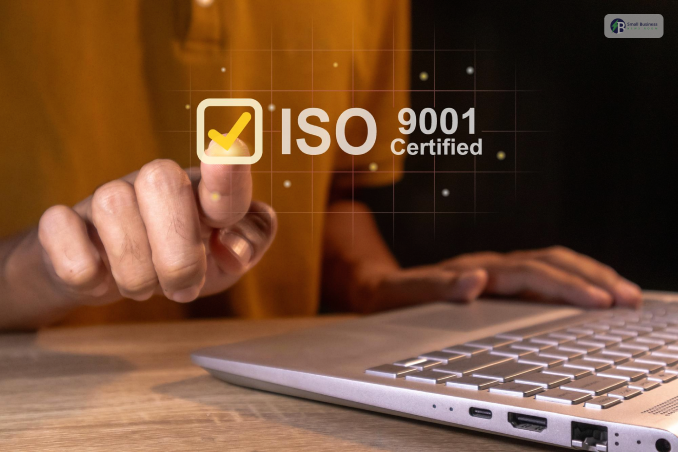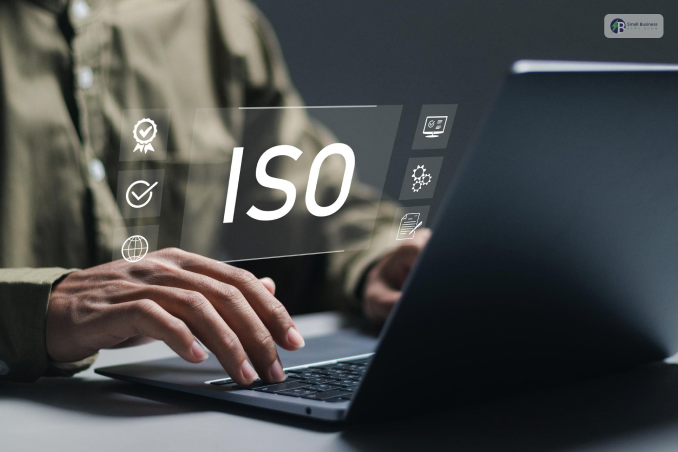Table Of Contents
- What is ISO Certification?
- What Are The Benefits Of An Iso Certification?
- Enhancing Credibility And Trust
- Improving Efficiency And Productivity
- Continuous Improvement And Risk Management
- What Are The Considerations And Challenges?
- What Are the Different ISO Definitions?
- ISO
- 2015
- 9001
- How To Discover New ISO Standards?
How Important is ISO Certification for Businesses?
Last Updated on: December 3rd, 2025
Any person managing a business or in charge of a small or large business has probably come across the term ISO certification.
It is proof that a company cares about the quality of its products and customer service. But how significant is an ISO certification for business?
This international standard-setting body, made up of representatives from various national institutes, is the one that defines the standards for any business sector.
In this detailed guide, we will talk about what ISO certification is and its benefits. Besides, you will also know the terms related to ISO certification.
So, without wasting time, let’s find out the benefits and the considerations of this standard, which is recognized worldwide.
What is ISO Certification?

ISO, or the International Organization for Standardization, is an independent, non-governmental organization.
They establish and publish standards for different industries worldwide. An ISO certificate is generally a recognition mark. But what exactly is that?
It indicates that a company has fulfilled the requirements of a certain ISO standard. To illustrate, ISO 9001 mainly concerns quality management standards. For environmentally friendly management practices, you should adopt ISO 14001.
Let me give you a brief example that a manufacturing company has ISO 9001 certification.
Later, they can notice that the product defect has been reduced by around 15% within the first year.
Reason? They have been able to control with better process control. This clearly shows why businesses pursue certification.
What Are The Benefits Of An Iso Certification?

An International Organization for Standardisation certification helps an organization to determine compliance with standards. This certification assures business partners, the public and even customers of the organization that should address international quality assurance needs. Here are some common advantages:
Enhancing Credibility And Trust
One of the primary benefits of ISO certification is the enhanced credibility and trust it brings to a business.
Once a company achieves a certificate, it helps the company to demonstrate its dedication to meet the international standards and best practices.
If you are planning to seek new customers and partners, it can be valuable for you! It further reassures you that your company operates to a high standard.
For example, a small tech start-up company can use the ISO 27001 or the information security certification to land contracts. These contracts were made with the clients who require strong proof of data security.
Improving Efficiency And Productivity
ISO certification usually means two things! One is that businesses have to review their processes and procedures. Second, they have to ensure that they are optimizing it!
This can help to improve both efficiency and productivity across the organization. You can also identify and further eliminate all the inefficiencies.
This can further help you to:
- Streamline the operations
- Reduce the waste
- Lower the costs
In time, this leads to improved efficiency and productivity across the organization. By identifying and eliminating inefficiencies, companies can streamline their operations, reduce waste, and ultimately lower costs.
The structured approach provided by ISO standards can also help businesses maintain consistency in their products or services.
Here is a concrete example! You all are aware of the delivery issues made by the logistics companies, right? While some are deliberate negligence, some are not!
The ISO 9001 standards can play a massive role in cutting the delivery errors by around 20% once they are implemented. According to the standards, new process controls and employee training play a strong role in this!
Continuous Improvement And Risk Management
ISO standards emphasize the importance of continuous improvement and risk management. Companies that embrace these principles are better equipped to adapt to changing market conditions, customer requirements, and regulatory landscapes.
By regularly reviewing and updating your processes, your ISO-certified business can stay ahead of the curve and mitigate potential risks to your operations. It’s well worth working towards certification for that alone.
Here’s a Pro tip that you can follow:
Once you start using the PDCA (Plan-Do-Check-Act) cycle, you’ll find it embedded in ISO standards. The PDCA cycle can help you to help the companies continuously improve while managing risks effectively.
What Are The Considerations And Challenges?

The benefits of the ISO certification are clear. But we cannot ignore the fact that achieving and maintaining certification can be challenging.
You require the time, resources, and effort. Which is why it is necessary for you to:
- Document all your processes
- Train the employees
- Undergo some regular audits.
This can further ensure strong ongoing compliance with ISO standards. Luckily, you can streamline the process by pursuing an automated ISO 27001 solution.
The cost of certification can also be a barrier for some businesses, particularly smaller organizations with limited budgets.
However, many companies view the long-term benefits of ISO certification as outweighing the initial costs.
There is one thing you must always keep in mind! This certification can take anywhere from a few months to over a year. The duration is strongly dependent on your industry, company size, and internal readiness.
Costs also vary widely! From a few thousand dollars to tens of thousands! So plan your budget accordingly.
What Are the Different ISO Definitions?
The ISO Certification 9001:2008 is generally made up of three parts: 9001, ISO, and 2015. Let’s get a clear definition of each of them:
ISO
As already mentioned, ISO stands for International Organization for Standardization. The organization is responsible for developing the standards if they want to certify their business. Third parties handle certification, and each one of them is annually tested.
2015
The annual ISO certification number is the standard version that has to be addressed and is represented according to the calendar year. The fifth edition of ISO 9001 IS 2015 was launched in 2015’s September. Finally, Mead Metals updated its process to address the new version’s specifications.
9001
The standard of the brand is recognized after the number is visible on the ISO classification. Every standard within this category is quality management. ISO 9001 refers to the best-known standards of ISO and mentions the criteria for numbering quality management principles. It assists organizations and businesses in becoming more efficient.
How To Discover New ISO Standards?
One of the most intriguing ways to learn about revised, updated, or new ISO standards is by studying ISO. The organization keeps revising its standards, so read them because they are the most authentic sources. Apart from that, there are various outlets offering explanations and summaries of ISO updates. Not only do they help businesses but also people to understand them.
For example, the 9001Simplified Website has detailed the ISO changes between 2008 and 2015. This update consists of:
- Higher clauses
- A totally high-level structure
- Multiple terminology
- More attention to outputs and inputs
- A streamlined process
- Risk-dependent thinking
- Attention to the organization’s context
- Commitment and leadership updates
- Great integration with ISO standards















